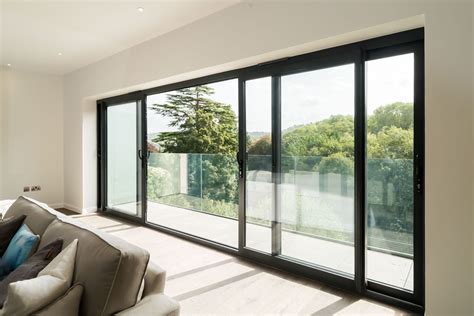Sliding glass doors offer a seamless connection between indoors and outdoors, flooding your home with natural light and creating an illusion of space. However, these expansive windows can also pose challenges, including privacy concerns, excessive sunlight exposure, and energy loss.

Tinting your sliding glass doors is an effective solution to address these issues and elevate the aesthetic appeal of your home. Here’s a comprehensive guide to help you understand the benefits, types, and considerations of using tints for sliding glass doors:
The Benefits of Tinting Sliding Glass Doors
- Enhanced Privacy: Tints obscure the view from outside, providing privacy while allowing natural light to enter.
- Reduced Sun Exposure: Tints block harmful UV rays, protecting your furniture, flooring, and artwork from fading.
- Improved Energy Efficiency: Tints reflect heat, reducing cooling costs in the summer and heat loss in the winter.
- Reduced Glare: Tints minimize glare, making it more comfortable to enjoy the natural light without straining your eyes.
- Enhanced Aesthetics: Tints add a touch of elegance and sophistication to your home’s exterior.
Types of Tints for Sliding Glass Doors
There are several types of tints available, each with its own unique properties and benefits:
- Reflective Tints: These tints reflect sunlight, reducing glare and heat gain. They offer high privacy but can make the exterior of your home appear darker.
- Absorptive Tints: These tints absorb sunlight, reducing heat gain and UV exposure. They provide less privacy than reflective tints but offer a wider range of colors.
- Neutral Tints: These tints do not alter the color of the glass but reduce glare and UV exposure. They are ideal for maintaining the natural look of your home’s exterior.
- Mirrored Tints: These tints offer high privacy by reflecting light, giving the appearance of a mirror from the outside. They are often used in commercial and public buildings.
Choosing the Right Tint for Your Needs
When selecting a tint for your sliding glass doors, consider the following factors:
- Privacy level: Determine the level of privacy you desire based on the location, usage, and surrounding environment.
- Sun exposure: Assess the amount of sunlight your doors receive and choose a tint that provides the appropriate level of heat reduction.
- Exterior aesthetics: Consider the color and reflectivity of the tint and how it will complement the exterior of your home.
- Energy efficiency: Look for tints with a high solar heat gain coefficient (SHGC) to reduce heat gain.
Installing and Maintaining Tints for Sliding Glass Doors
Proper installation is crucial for the effectiveness and longevity of your tints. It is recommended to hire a professional to ensure a seamless and durable installation. Here are some tips for maintaining your tinted sliding glass doors:
- Clean the glass regularly with a mild soap solution to remove dirt and grime.
- Avoid using abrasive cleaners or solvents that can damage the tint.
- Inspect the tint periodically for any signs of wear or tear and repair promptly if necessary.
Common Mistakes to Avoid
- Choosing a tint that is too dark: Overly dark tints can block out too much light and make your home feel gloomy.
- Not factoring in the surroundings: Consider the effects of the tint on your exterior facade and surrounding environment, especially if you live in a community with architectural guidelines.
- DIY installation: While tempting, DIY installation can lead to improper application and a compromised tint.
Innovation and Creative Applications
In addition to traditional applications, the concept of “tinting” has inspired innovative applications and new products:
- Smart Tints: These tints can be controlled electronically, allowing you to adjust the level of privacy and sun exposure with a click of a button.
- Tinted Glass Blocks: These glass blocks incorporate tints, providing privacy and diffused natural light for interior walls and architectural features.
- Tinted Skylights: Tints can be applied to skylights to regulate sunlight and create a more comfortable indoor environment.
Conclusion
Tinting your sliding glass doors is a multifaceted investment that can enhance privacy, energy efficiency, and the overall aesthetic appeal of your home. By understanding the different types of tints, considering your specific needs, and following proper installation and maintenance practices, you can transform your sliding glass doors into functional and stylish elements that elevate your daily living experience.
